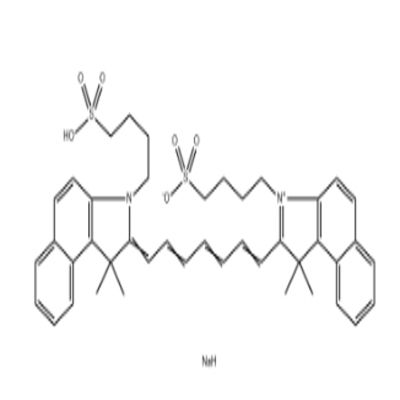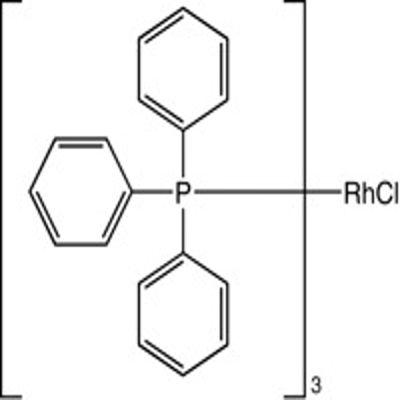-
Categories
-
Pharmaceutical Intermediates
-
Active Pharmaceutical Ingredients
-
Food Additives
- Industrial Coatings
- Agrochemicals
- Dyes and Pigments
- Surfactant
- Flavors and Fragrances
- Chemical Reagents
- Catalyst and Auxiliary
- Natural Products
- Inorganic Chemistry
-
Organic Chemistry
-
Biochemical Engineering
- Analytical Chemistry
- Cosmetic Ingredient
-
Pharmaceutical Intermediates
Promotion
ECHEMI Mall
Wholesale
Weekly Price
Exhibition
News
-
Trade Service
For three days in a row, Immune Therapy News dominated the screen. On January 9th, the first three won the right to develop kitePharma's KTE-C19 in Japan. Yesterday, triplets bought Dedendreon, Valeant's US biopharmaceutical company. Today, Fosun Pharma also announced the establishment of a Sino-foreign joint venture with Kite Pharma to study immunotherapy for lymphoma. The pharmaceutical giant has invested heavily in immunotherapy, is its spring back?A number of investments in immunotherapy
Fosun Pharma announced late yesterday that Its wholly-owned subsidiary Fosun Pharmaceuticals intends to invest about US$80 million to jointly establish a Sino-foreign cooperative venture with Kite Co., Ltd. fosun Pharma Kate Biotech (China) Co., Ltd. to open up the Chinese cancer T-cell immunotherapy market.
under the terms of the agreement, Fosun Pharma intends to contribute $20 million in cash, with KitePharma selling its products and know-how for $20 million, each with a 50% stake in the joint venture. The joint venture will pay KitePharma $40 million to cover related patent and technology costs and a milestone of $35 million to KitePharma and a sales credit for KTE-C19 products based on research and development progress.
similar to this collaboration, on January 9th KitePharma announced a strategic partnership with Japan's No. 13, which will work together to develop and commercialize KTE-C19 products in Japan to revolutionize the treatment of cancer patients in Japan. The first three will make a $50 million down payment to Kite Pharma, which will be entitled to a milestone payment of up to $200 million for future research and development and commercialization milestones. In addition, Kite will be entitled to a future sales pick-up.
Kite's KTE-C19 is currently recognized by the FDA as a breakthrough therapeutic drug for diffuse large B-cell lymphoma (DLBCL), transformative filament lymphoma (TFL) and primary lymphoma (PMBCL), and is included in the DLBCL Priority Drug (PRIME) approval program in the European Union.
addition, the triplets group yesterday announced a deal with Valeant to buy a 100 per cent stake in Valeant's US biopharmaceutical company, Dedendreon, in San Francisco. The deal is worth $819 million.on April 29, 2010, the FDA officially approved Dendreon's Provenge to treat metastatic degenerative (hormonal incurable) prostate cancer asymptomatic or mildly symptomatic, becoming the first FDA-approved autoimmune cell therapy for prostate cancer, according to
data.
Profits for 2016 were $120 million, with a price-to-earnings ratio of about eight times. The Dendreon sale is expected to be completed in the first half of 2017, Reuters reported. Valeant said it would use the proceeds to pay off term loan obligations for priority credit facilities.Accidents have made immunotherapy cold
last year's Wei Tracy incident made immunotherapy in the domestic development of a layer of frost, after the foreign immunotherapy giant repeated treatment accidents also made immunotherapy cold.
juno, an immunotherapy giant, was briefly suspended by the FDA in 2014 after two patients died as a result of a cytokine storm during Juno's CAR-T clinical trial.
last July, the FDA ordered Juno's CAR-T immunotherapy JCAR015 to be halted from clinical Phase II trials in patients with recurring or incurable B-cell acute lymphoblastic leukemia, as three cases have died. Juno's death was believed to have been caused by a combination of fluorodalabin and the company's JCAR015 drug, after which the FDA announced that Juno would be allowed to continue the JCAR015 Clinical Phase II trial on the basis of the removal of the chemotherapy drug fluorodalabin.
, however, just five months later, in November, Juno announced that the treatment had again led to the death of two patients who had under been tested for cerebral edema, one of whom died and the other was not expected to recover.
, another key player in CAR-T therapy, announced in September that it would disband its cell and gene therapy research division after a series of problems with immunotherapy. Although Novarlor said research and development of its major immunotherapy programs, such as CTL019 and its humanized second-generation product CTL119, would continue and its partnership with Penn would not be affected, Novarca's move was widely seen as a result of concerns about the outlook for the entire CAR-T sector.
, kitePharma didn't make a big mistake in developing car-T and was aggressively deployed around the world. Fosun's collaboration with Kite also shows that Kite's immunotherapy is still highly sought after.
KitePharma Chairman, President and CEO Arie Berdegrun said of the partnership with Fosun, "The establishment of the joint venture accelerates KitePharma's entry into such a very important market as China and helps us achieve the important goal of global influence." We look forward to your joint efforts to meet the huge unseeded treatment needs of the Chinese market. Althoughresults of clinical research have been
the immunotherapy has encountered various problems in the last six months, the relevant research is still advancing. The current CAR-T treatment is mainly used in the field of blood tumors such as leukemia and lymphoma, and has achieved good results. Grapefruit summarizes some of the major clinical advances in immunotherapy in the last six months.
clinical trial of early immunotherapy led by the Fred Hutchinson Cancer Research Center in the United States has cured patients with non-Hodgkin's lymphoma, according to a recent study published in science. After a group of 11 patients underwent chemotherapy before receiving moderate doses of CAR-T cell perfusion, these CAR-T cells effectively destroyed the cancer. Seven of the 11 patients (64%) had their tumors completely gone.
researchers at the Dana Faber Cancer Institute in the United States recently found that early intervention using a combination of immunotherapy drugs may prevent tulip multiple myeloma from developing into a fully mature multiple myeloma. In the clinical study, they recruited a total of 50 patients, 47 of whom were still retroactive, of whom 23 completed nine rounds of treatment, 82.6 percent of whom experienced tumor atrophy caused by the combination of drugs, and 34.8 percent of whom responded well.
researchers from the University of London in the United Kingdom, by combining IMM-101 with the existing chemotherapy drug gemcitabine, found that it was effective in killing protective cells outside pancreatic cancer cells and in prolonging the life of patients with metastatic pancreatic cancer. At the same time, the results showed that there were no obvious side effects of the therapy. However, since the trial included only 110 patients, the sample size needs to be increased to obtain more reliable results.
new study published in Cell by researchers at MD Anderson Cancer Center in the United States shows that melanoma can use genetic mutations to fight the immunotherapy drug ilimumab. The researchers analyzed all-extrote sequencing data from 16 patients treated with melanoma treated with ipilimumab. Only 4 of the 16 patients responded to ipilimumab treatment, while 12 others did not. The analysis showed that there were an average of 15.33 gene mutations in the IFN signaling pathway of tumors, with the most significant variation in gene copy number. (Sina Pharmaceuticals)







